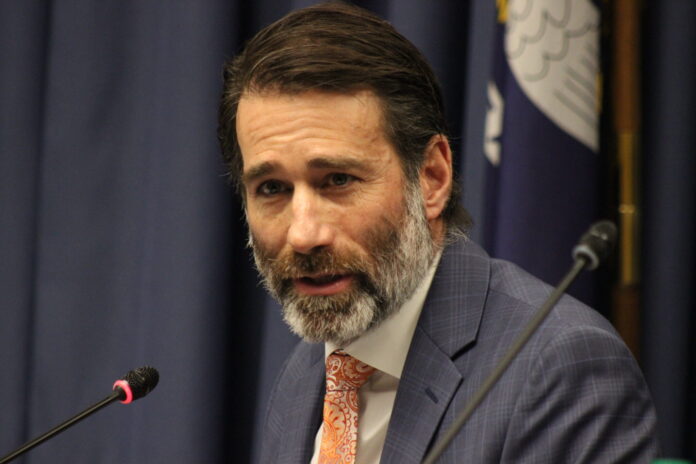Baton Rouge, LA (11/28/2023) – U.S. Rep. Garret Graves and Lt. Gov. Billy Nungesser are calling for more federal funding to test imported seafood and tighter regulations to slow the influx of foreign catch onto Louisiana’s seafood market.
Both Graves and Nungesser shared separate though somewhat similar proposals Monday with the Louisiana Seafood Safety Task Force, which is working to address a struggling domestic fishery and the increasing health threats from imported foreign seafood.
Foreign catch has become so cheap that it now comprises nearly 90% of all seafood consumed in America, according to the Louisiana Seafood Promotion & Marketing Board.
Graves said China and other foreign governments subsidize their fishing fleets to flood the U.S. market and put domestic fisheries out of business. China also uses its shrimping fleets for military reconnaissance purposes, he said.
“This is part of their intelligence collection,” Graves said.
Several task force members said the primary issue is that foreign seafood increases the risks of introducing harmful contaminants into the food supply.
A 2020 LSU Agricultural Center study tested a variety of imported shrimp purchased from multiple locations in the Baton Rouge area and detected banned veterinary drugs in more than two-thirds of the samples. Researchers noted the prohibited chemicals can have severe adverse effects on humans.
Despite those findings, a 2011 report published in Environmental Science and Technology found the federal government only tests roughly 2% of the foreign catch that arrives at U.S. shipping ports, whereas the European Union inspects 50%, Japan tests 18% and Canada samples 15%.
Graves told the task force he is working on bipartisan legislation that would use existing tariff dollars for more seafood testing.
Nungesser said he would push for federal legislation that adds a 5- or 10-cent-per-pound testing fee on imported seafood. He also told the task force he would gladly take on the problem of restaurants and food distributors deceptively labeling imported seafood in Louisiana and wants lawmakers to give his office authority to enforce the state’s labeling laws.
According to the Louisiana Shrimp Association, most restaurants in the state choose to serve imported shrimp and crawfish to patrons who are either oblivious to it or mistakenly believe they’re eating local fare.
Louisiana enacted a law in 2008 that prohibits restaurant owners or managers from misrepresenting the origin of their shrimp or crawfish either verbally or on a menu. The law carries a $50 fine for a first offense, but the state has never enforced the statute.
Another law, approved in 2019, requires restaurants to indicate on their menus or on a sign if they serve imported shrimp or crawfish. That law gave state health officials authority to inspect and cite businesses for those violations, but despite recording more than 2,600 violations since it took effect, the state hasn’t issued a single fine.
Nungesser said the Louisiana Seafood Promotion and Marketing Board could take over the enforcement duties, noting that its members are passionate about the domestic seafood industry.
The Seafood Safety Task Force will likely not meet again until next year, at which point it could have some new members appointed by Gov.-elect Jeff Landry.
Source: La. Illuminator; Author: Wesley Muller






